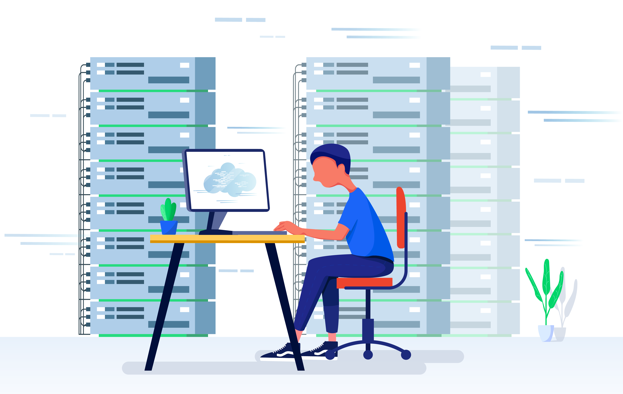The Benefits of Using a CDN With Your Web Hosting
If you’re an e-commerce brand, you can benefit from the same advantages of a CDN as the big players. A CDN delivers your content faster and more reliably to users. It also reduces your bandwidth usage, allowing you to lower your monthly hosting bill.
The CDN’s servers cache your website content so that people download it from the nearest server instead of your web host. That decreases the number of requests that go to your web server and allows your site to load and stream more quickly for every user. The CDN also uses techniques like compression and minification to reduce file sizes so that the data can be delivered more quickly.
CDN servers are located around the world, so you get better performance wherever your customers are. That’s especially important for visitors from abroad. Unlike conventional web hosts, CDNs are built to carry heavy online traffic. They do this by distributing your website files to multiple operational servers around the globe.
That way, each person can access your site from a server closest to them, making the experience much smoother and less prone to stalls. This is known as reduced latency and is what keeps your customers happy and loyal to your brand.
Using a CDN can also help improve your web pages’ SEO. One of the core Google Page Vitals is “speed and performance,” which is partly measured by the time it takes to download your content. That’s why a fast and reliable CDN can be so helpful to your SEO strategy.
A CDN is an excellent option for businesses that need to deliver high-quality, consistent media content to a global audience. In addition to improving the performance of your website, a CDN can boost your SEO ranking by optimizing content delivery for mobile users.
In addition, a CDN can reduce your website’s bandwidth by caching your content in its distributed networks. That makes it possible for people to access premium media, such as videos, instantly – without having to wait for your web host to send the file over long distances of wires and cables.
The multiple servers used by a CDN provide the additional benefit of redundancy. If a single server receives too many requests that it cannot handle, it can start to slow down or even crash. With a CDN, the excess requests are sent to other operational servers to avoid the failure that would otherwise affect website availability.
CDNs can also enhance your site’s security by protecting against DDoS attacks that target web servers and cause them to become unavailable.
A CDN will protect your servers from these malicious bots by sending the attacks to other operational servers on its network. Then, the attacks are stopped before they can do any damage. This is one reason why choosing a reliable CDN provider that offers robust security measures is critical.

My Recent Posts
All-in-One Sales Automation Platform
Check out my recent post on all-in-one sales and marketing tools and what I think of it.
Sales Funnels
Check out my recent post on sales funnels and what I think about them. Are they still worth it?

The Same "about me" text you wrote on your about me page; you want to write it here or write an excerpt of it here. Just make sure it makes sense, and looks complete if you're going to write an excerpt. So delete this text and add yours on every article page.
[ENTER YOUR NAME HERE]
©Copyright [ENTER CURRENT YEAR] [ENTER COMPANY NAME OR DOMAIN NAME]
[ENTER COMPANY ADDRESS]
[ENTER COMPANY CITY/STATE/PROVINCE & Zip Code/Postal Code]
